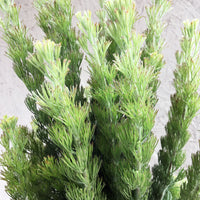
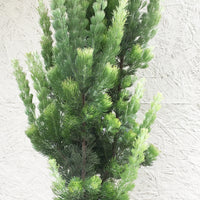
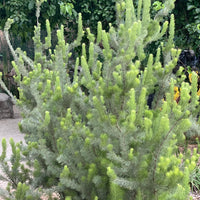
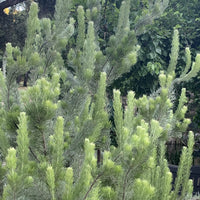
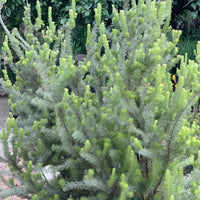
Adenanthos sericeus, Coast Woollybush
Coast Woollybush
This fine-textured upright shrub or small tree typically grows up to ten feet tall and up to six feet wide. It has wispy stems that are covered with soft gray needle-like foliage that is very soft to touch and flushes pink in new growth. The small red tubular flowers appear at the base of the leaves off and on throughout the year. Prune in spring and summer.
-Plant in full sun, partial shade in warm areas
- Best in well draining soil, does not like wet or clay soil
- Tolerant of wind
-Low water needs, drought tolerant once established
- Attracts bees and birds
- Hardy up to 20-25 degrees, tip damage can be noticed below 25
- Native to Australia
This content type will accept rich text to help with adding styles and links to additional pages or content. Use this to add supplementary information to help your buyers.
You can use product metafields to assign content to this tab that is unique to an individual product. Use tabs to highlight unique features, sizing information, or other sales information.
Coast Woollybush
This fine-textured upright shrub or small tree typically grows up to ten feet tall and up to six feet wide. It has wispy stems that are covered with soft gray needle-like foliage that is very soft to touch and flushes pink in new growth. The small red tubular flowers appear at the base of the leaves off and on throughout the year. Prune in spring and summer.
-Plant in full sun, partial shade in warm areas
- Best in well draining soil, does not like wet or clay soil
- Tolerant of wind
-Low water needs, drought tolerant once established
- Attracts bees and birds
- Hardy up to 20-25 degrees, tip damage can be noticed below 25
- Native to Australia





